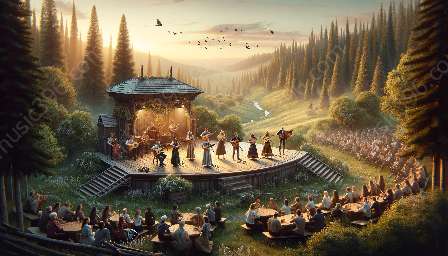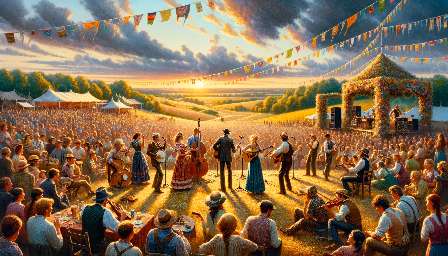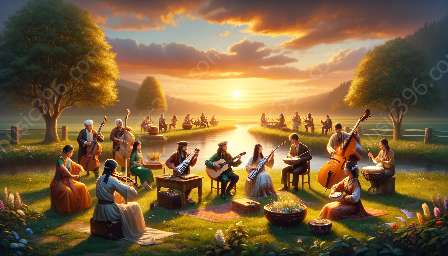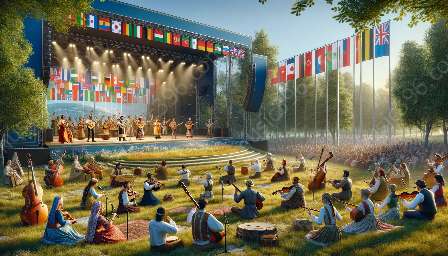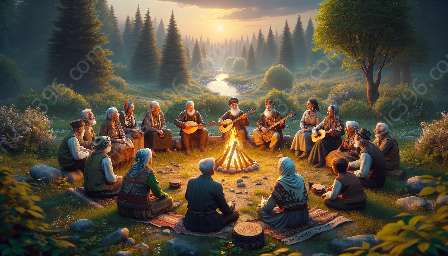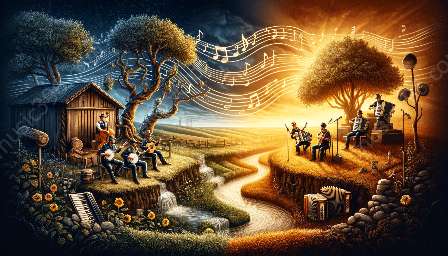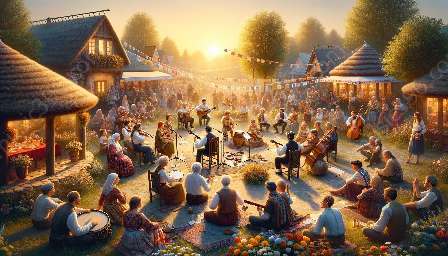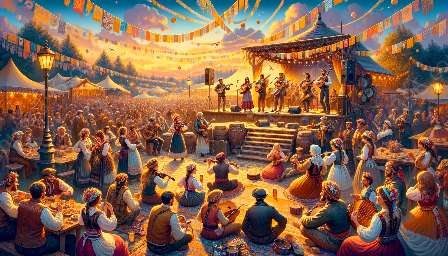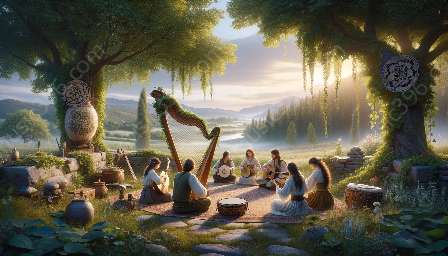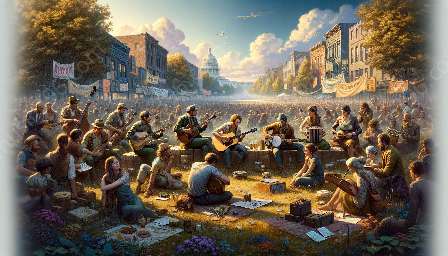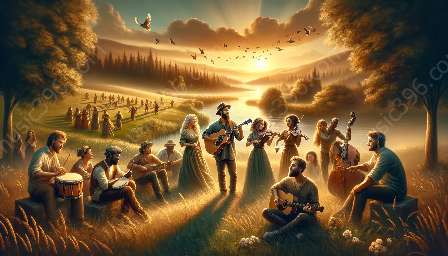Traditional music and cultural practices play a vital role in shaping the identity of a community. As societal norms evolve, the adaptation of traditional music becomes crucial in preserving cultural heritage and fostering community cohesion. This article aims to explore how traditional music serves as a tool for community building and examine its connection to folk and traditional music.
The Significance of Traditional Music in Adapting to Changing Societal Norms
Traditional music carries the essence of a community's history, beliefs, and values. As societal norms undergo transformations, traditional music serves as a resilient link to the past, providing a sense of continuity and identity in the face of change. The adaptation of traditional music involves embracing innovation while maintaining its core essence, making it relevant to contemporary societal norms.
Cultural Practices as a Reflection of Societal Norms
Cultural practices are deeply intertwined with societal norms, reflecting the customs, rituals, and traditions of a community. As societal norms change, cultural practices undergo adaptation to ensure their continuity and relevance. Traditional music often forms an integral part of these cultural practices, evolving to resonate with changing societal norms while safeguarding the essence of tradition.
Traditional Music as a Tool for Community Building
Traditional music has the power to bring people together, transcending differences and fostering a sense of belonging. Through communal performances, dance, and celebration, traditional music strengthens social bonds, promoting unity and solidarity within the community. Its adaptability to changing societal norms enables traditional music to serve as a powerful tool for community building, creating shared experiences that bridge generations and diverse backgrounds.
Preservation of Cultural Heritage and Identity
Amidst evolving societal norms, the adaptation of traditional music becomes instrumental in preserving cultural heritage and identity. By integrating contemporary elements while honoring tradition, traditional music remains relevant and accessible to new generations, ensuring the transmission of cultural values and knowledge. This preservation sustains a sense of pride and belonging within the community, enhancing the appreciation of cultural diversity and fostering intergenerational connections.
Folk & Traditional Music: A Collective Expression of Cultural Evolution
Folk and traditional music encapsulate the collective expression of a community's cultural evolution. As societal norms shift, folk and traditional music evolve to reflect the changing dynamics, incorporating diverse influences and narratives. The adaptability of folk and traditional music to changing societal norms amplifies its significance as a living testimony to the resilience and creativity of communities, enriching the tapestry of cultural heritage.


